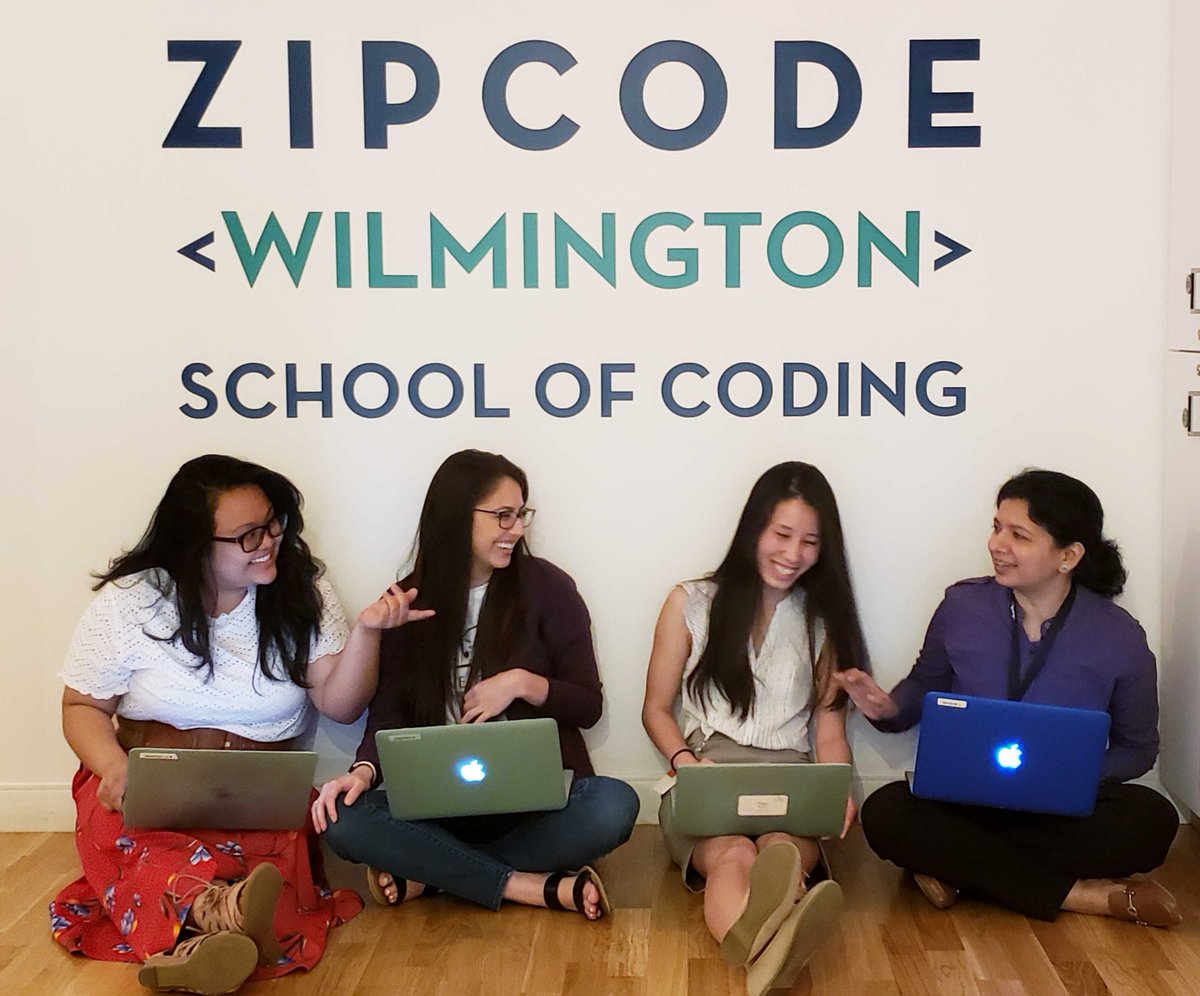In August, Teri Quinn Gray, Ph.D, became the newest member of Zip Code Wilmington’s board of directors — and the four-year-old board’s first woman and person of color, joining cofounders Jim Stewart of Epic Research, Ben DuPont of Chartline Capital Partners and Porter Schutt of Brown Advisory.
Dr. Gray is a global R&D operations and portfolio management leader at DuPont Transportation and Industrial and education advocate in Delaware who served on the Delaware Board of Education from 2009 to 2017. She also sits on the boards for the Delaware Foundation for Science and Math Education, the Delaware Campaign for Action Now, and the Community Education Building, and is a former co-chair of the Delaware STEM Council.
We recently had a conversation with Dr. Gray about education, tech and inclusion in Delaware — and how the tech training program plans to evolve with the times.
###
Technical.ly Delaware: How did you get involved with Zip Code?
Teri Quinn Gray: My first real introduction to Zip Code was a few years ago. The Delaware STEM Council sponsors the Delaware STEM Educator Awards every year. With that, we typically have a symposium that precedes the awards ceremony and Zip Code’s [executive director] Melanie Augustin was a speaker.
I had watched [Zip Code] when it first launched in 2015 and thought it was a really bold experiment, because coding schools were starting up all over at that time and it was interesting to see how that business model was working, and how it does really challenge our traditional teaching and education system.
It says, we’ll take the brightest minds, if they have the energy and they have the grit. We have great instruction and great teaching and great training. And we can bring those two things together and give people life skills that will allow them to contribute and take care of themselves. And to do it in 12 weeks is pretty bold.
How important are these kinds of programs for women and people of color?

Teri Quinn Gray. (Courtesy photo)
It’s super important, right? I had a tour prior to joining the board just to understand what it was about and speaking with the founders, particularly Ben du Pont about bringing women in and to breaking that barrier for women in tech. You have to be intentional about it.
I was walked through a year or so ago before being on the board was even on the radar, saying, “Wow, there’s not as many women as I thought.” But I see that everywhere I go, because that’s a reality. It’s a provocation I offered, and it’s amazing that folks said, “Yeah, how do we do something different with that?” Seeing the growth in the last year or two was one of the reasons I said yes.
It’s one thing to do the tech part, but there’s so much relationship building. Zip Code is all about teamwork on those tough problems. The intensity is that the space is open 24 hours. What does that look like with the people who come through, be it women, be it people of color? You’ve probably seen some of the stories: receptionists, cooks, dancers — it’s a diversity experiment in action from all perspectives, not just gender and ethnicity.
If you’re learning something with someone for 12 weeks at that level of intensity, I think you’re learning something way bigger than coding.
What is the most important thing that you bring to the table?
I can’t stop being a woman of color — that’s who I am, that’s clear. But I think that’s not the most important piece.
It’s really about that broader educational experience. What does it mean to be an educator and what does the traditional education system look like in Delaware as well as nationally? And how does something like a coding school with a 12-week program like this fit into the portfolio of education? That’s a piece that I brought to the conversation.
We talk about that 13-year journey from K-12, to be college and career ready, which I totally believe is a part of the puzzle for some of us. Then there are cases where that’s not the plan. But the learning and the brain exercise is the same. The grit, the need to communicate, to study, to exercise what you know and practice your skills are common across both of those paradigms. Some of us just get there a different way.
[Zip Code] gave me an opportunity to check myself, to make sure that I believed that. Now I’m living it.
I think it’s important that we talk about women in the tech industry in general — this is not necessarily my specific tech area, I’m a chemist — but the T [in STEM] is the same. I use the coding day in and day out with every instrument that my team uses. It’s so ingrained in almost everything that we do.
When we talk about the diversity issue, which a lot of folks don’t want to talk about head on, you have to be able to talk about it, but you also have to live it. You just can’t talk about it.
Where do you see Zip Code over the next few years?
I think the main thing about Zip Code that makes us different is that we are intimate with our partners, so we’re hearing directly from the market and directly from employers about what they want. And we adjust our curriculum and the experience for our developers so that they’re ready. If that starts to shift, we should be right at the pulse of that, versus kind of standing back and reading the market papers that are months, if not years, lagging behind the reality.
I think as long as we’re intimate with the market and our partners, we’ll change as the market changes, which is exactly what we want to do.

This editorial article is a part of Technical.ly's Technologists of Color Month of our editorial calendar.
Before you go...
Please consider supporting Technical.ly to keep our independent journalism strong. Unlike most business-focused media outlets, we don’t have a paywall. Instead, we count on your personal and organizational support.
3 ways to support our work:- Contribute to the Journalism Fund. Charitable giving ensures our information remains free and accessible for residents to discover workforce programs and entrepreneurship pathways. This includes philanthropic grants and individual tax-deductible donations from readers like you.
- Use our Preferred Partners. Our directory of vetted providers offers high-quality recommendations for services our readers need, and each referral supports our journalism.
- Use our services. If you need entrepreneurs and tech leaders to buy your services, are seeking technologists to hire or want more professionals to know about your ecosystem, Technical.ly has the biggest and most engaged audience in the mid-Atlantic. We help companies tell their stories and answer big questions to meet and serve our community.
Join our growing Slack community
Join 5,000 tech professionals and entrepreneurs in our community Slack today!

The person charged in the UnitedHealthcare CEO shooting had a ton of tech connections

The looming TikTok ban doesn’t strike financial fear into the hearts of creators — it’s community they’re worried about

Where are the country’s most vibrant tech and startup communities?



